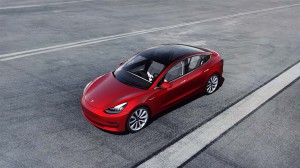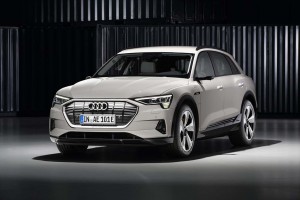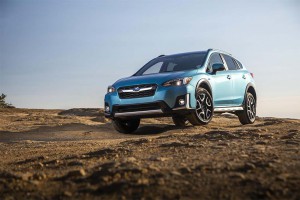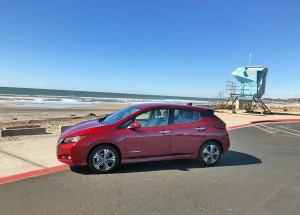With automakers facing increasingly stringent mileage and emissions standards, automakers are rapidly ramping up production of more and more environmentally friendly products, from breakthrough gas engines like Mazda’s new SkyActiv-X to all-electric offerings such as the new Audi e-tron SUV.
Sorting out which products and technologies deserve notice can be challenging, but Green Car Journal has been honoring the best of the best with its decade-old Green Car Awards, recently adding several new categories to the list. And it announced today finalists in two of those categories, with winners to be revealed early next month at the annual auto show in Washington, D.C.
The two awards focus on the technological side of the green car market, both in terms of connectivity and powertrains. Here’s a look at the finalists.
(Live from Geneva! Click Here for our complete auto show coverage.)
Finalists for 2019 Connected Green Car of the Year include:
- Audi e-tron, the first all-electric model from the Volkswagen Group luxury brand. The battery crossover promises plenty of room, driving range of 240 miles, all-wheel-drive capabilities and a suite of connected vehicle technologies, including infotainment, remote climate control operation and more;
- Nissan Leaf, the completely redesigned version of the world’s first mass-market battery-electric vehicle. The Leaf is now being offered with 150 mile range, the Leaf Plus stretching that to 226. It’s also equipped with connected-car technologies and even the ability to use its batteries to charge an owner’s home in the event of a power grid failure;
- Subaru Crosstrek Hybrid, the Japanese brand’s first plug-in hybrid pairs a 2.0-liter gas engine with a pair of electric motors that let it run in purely electric mode for short runs, the internal combustion engine powering up when the batteries are drained. The Crosstrek Hybrid also features a number of connected car systems and Subaru’s EyeSight driver assistance tech;
- Tesla Model 3, the brand’s first mainstream all-electric model is now the best-selling vehicle of its type in the world. Different versions offer ranges of 210 to 310 miles and even can give the sedan a performance boost. The Model 3 features an array of connected car technologies, including the semi-autonomous Autopilot system, and can download updates over the air;
- Toyota RAV4 Hybrid, the new version of the popular crossover, adds all-wheel-drive capabilities, along with yielding a big boost in mileage. The RAV4 Hybrid offers a number of high-tech systems, including Toyota’s Entune multimedia package and Intelligent Clearance Sonar.
(Click Here for more about our first drive in the 2019 Nissan Leaf Plus.)
Finalists for 2019 Green Car Technology of the Year include:
- Chevrolet Dynamic Fuel Management, a system that allows a gas engine to constantly respond to driving conditions, as well as driver input, to yield the best balance of performance, mileage and emissions. In some cases, it allows an engine to operate on only a single cylinder;
- Hyundai Nexo Fuel Cell Powertrain, the second-generation hydrogen drive system from the Korean carmaker increases power while growing smaller and using fewer precious metals. It also can operate at temperatures as low as -22 degrees and stores enough of the gas to travel 380 miles between refills;
- The Nissan VC-Turbo Engine, is the first production engine ever to continuously alter its compression ratio – anywhere from 8:1 to 14:1 — to deliver the best balance of performance, fuel economy and emissions;
- Mitsubishi PHEV Powertrain, combines front and rear electric motors with a 2.4-liter gas engine. The vehicle can operate in all-electric mode but, when batteries are drained, the engine fires up and serves as a generator to keep the vehicle running. An 80% recharge takes as little as 25 minutes;
- Ram eTorque, a mild hybrid system used on the new Ram 1500 pickup in both V-6 and V-8 configurations. It can recover and store energy to assist in launch and to permit auto-stop operation. The engine can also operate on just four cylinders when power demands are light.
(To see more about EVs and gas-powered vehicles costing the same by 2022, Click Here.)
The winners of the two awards will be announced at the Washington (D.C.) Auto Show on April 4.




